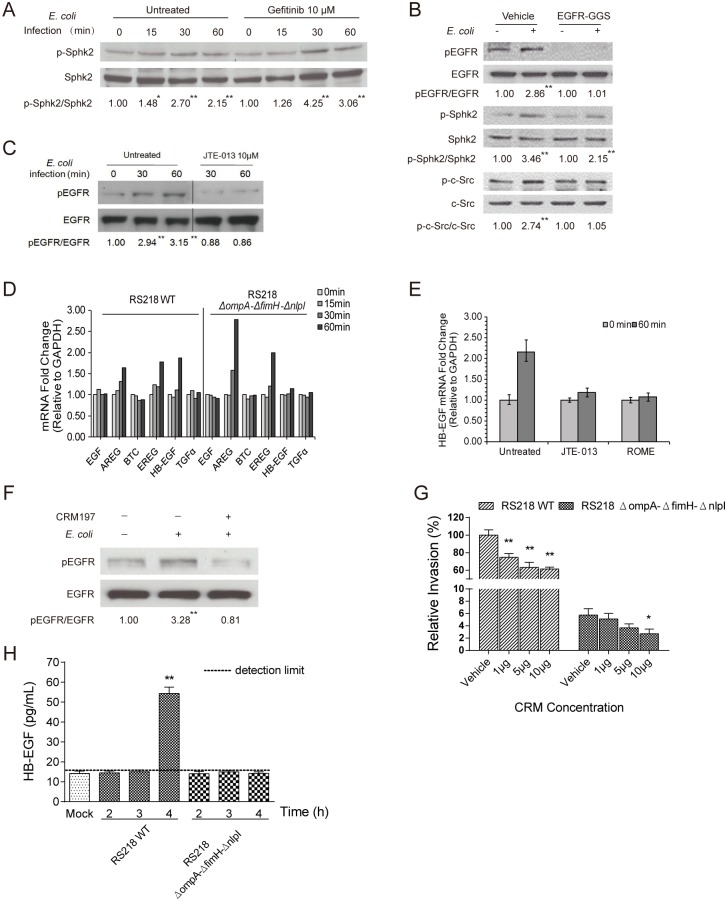Fig 4. SphK2-S1P-S1P2 is upstream of EGFR activation in meningitic E. coli invasion of HBMEC and contributes to HB-EGF mediated transactivation of EGFR.
(A) Activation of SphK2 in response to RS218 did not differ between HBMEC with and without gefitinib pretreatment. * p<0.05, ** p<0.01. (B) SphK2 activation was not affected in HBMEC expressing dominant-negative EGFR, while EGFR activation was, as expected, abolished in HBMEC expressing dominant-negative EGFR. Activation of c-Src occurred in response to E. coli in vector-transfected HBMEC, but did not occur in HBMEC expressing dominant-negative EGFR. ** p<0.01. (C) JTE-013 (S1P2 antagonist) inhibited EGFR activation in response to E. coli in HBMEC. ** p<0.01. (D) Real-time PCR analysis of the expression of EGFR ligands in response to wild-type E. coli RS218 or the triple deletion mutant in HBMEC. Representative results from three independent assays are shown. GAPDH was used as an endogenous reference. (E) Pretreatment of HBMEC with JTE-013 or (R)-FTY720-methyl ether (shown as ROME) prevented HB-EGF up-regulation (analyzed by real-time PCR) in response to RS218. (F) Pretreatment of HBMEC with CRM197 prevented EGFR activation in response to RS218. ** p<0.01. (G) CRM197 dose-dependently inhibited RS218 invasion of HBMEC, while only the highest dosage of CRM197 significantly affected HBMEC invasion by the triple mutant. ** p<0.01. (H) The release of HB-EGF from HBMEC infected with the triple deletion mutant for up to 4 h was below the detection limit, while HB-EGF release was significantly increased by approximately 3-fold from the cells infected with wild-type RS218 at 4 h, ** p<0.01.

